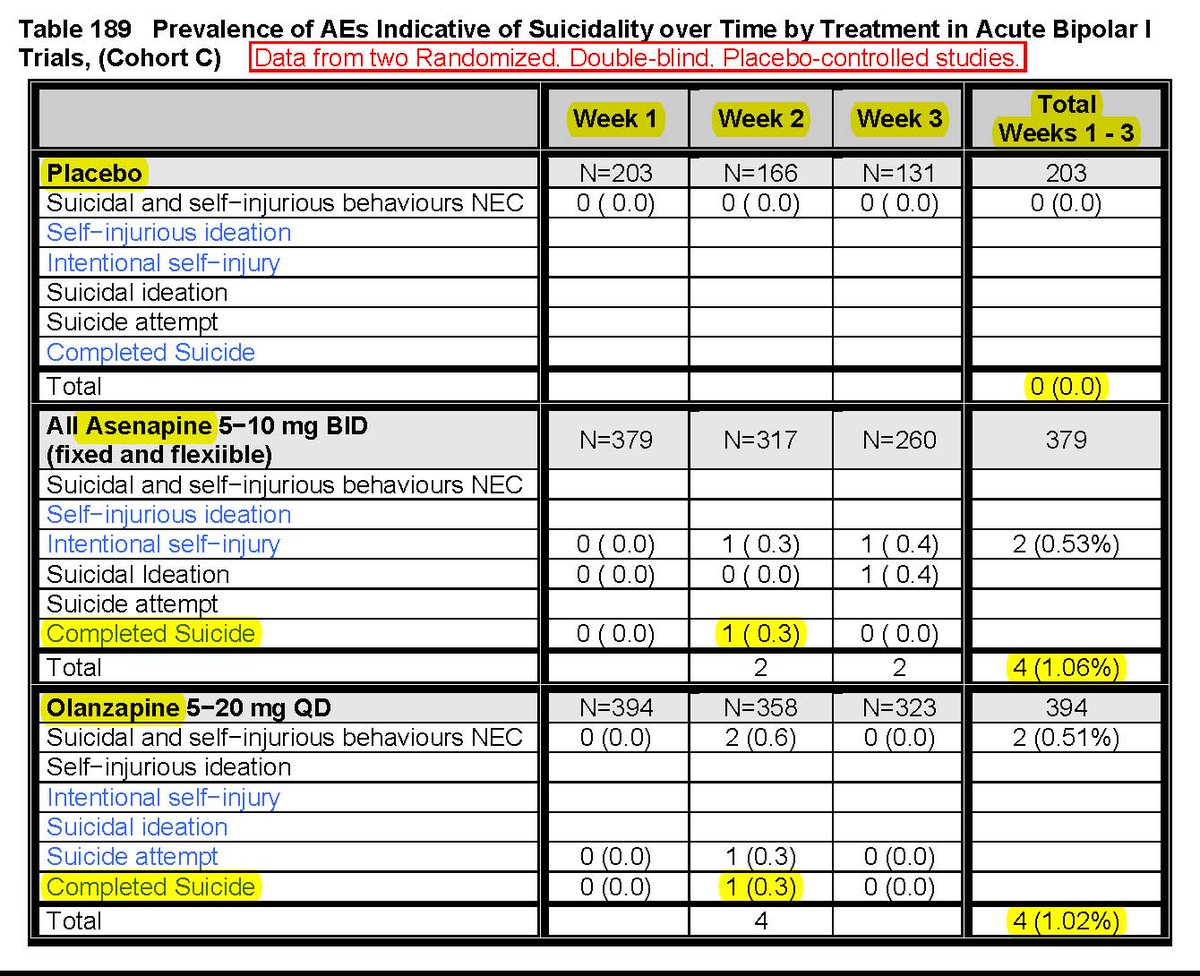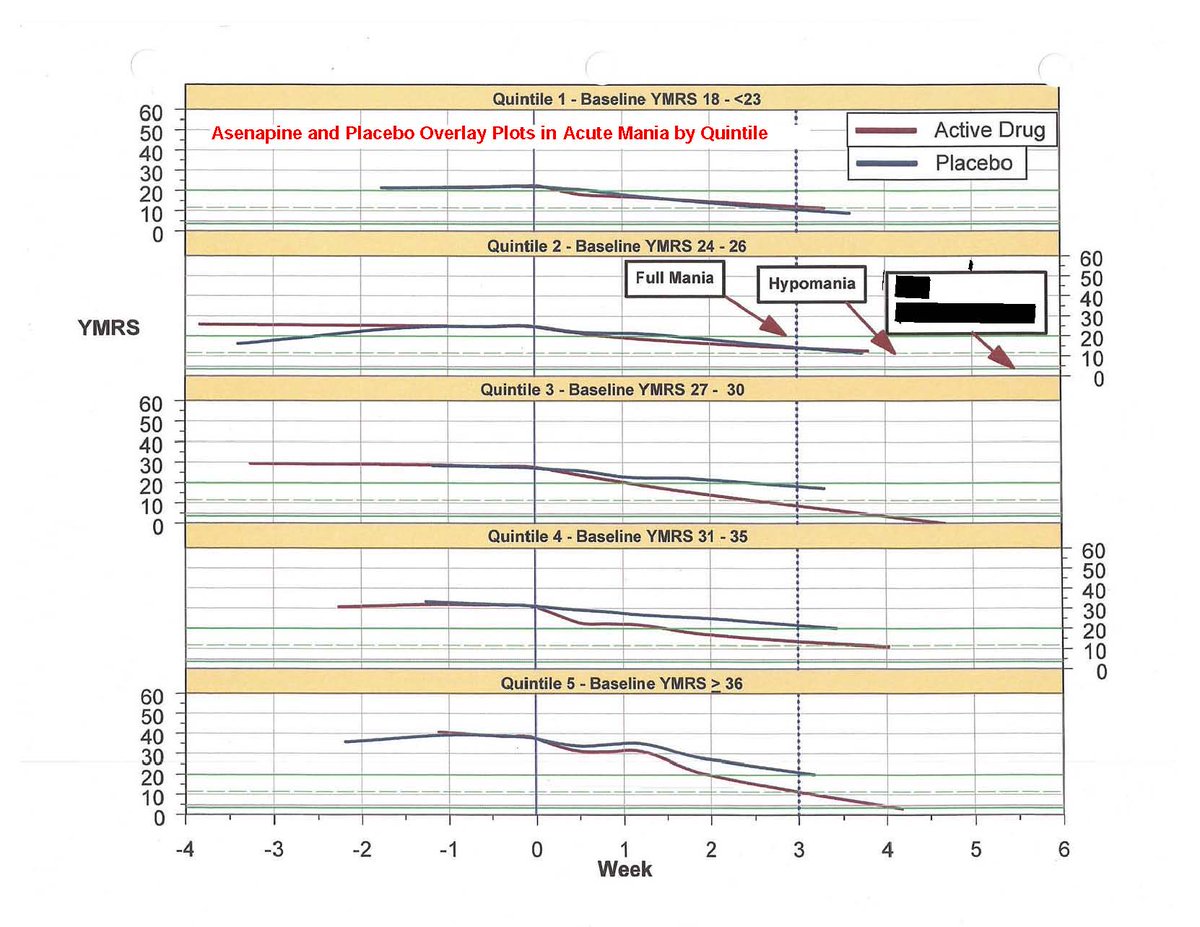
Ron Kavanagh, Clinical Pharmacologist, Ex-FDA Reviewer
10 yrs, 7 w Neuro/Psych
Fired 4 reporting felonies 2 FBI & 4 1st Amendment speech & petitioning Congress
How to get URL link on X (Twitter) App


 This signal for antipsychotics inducing suicide in patients treated acutely for mania is much stronger than the evidence for antidepressant induced suicidality for which there is a boxed warning.
This signal for antipsychotics inducing suicide in patients treated acutely for mania is much stronger than the evidence for antidepressant induced suicidality for which there is a boxed warning.
